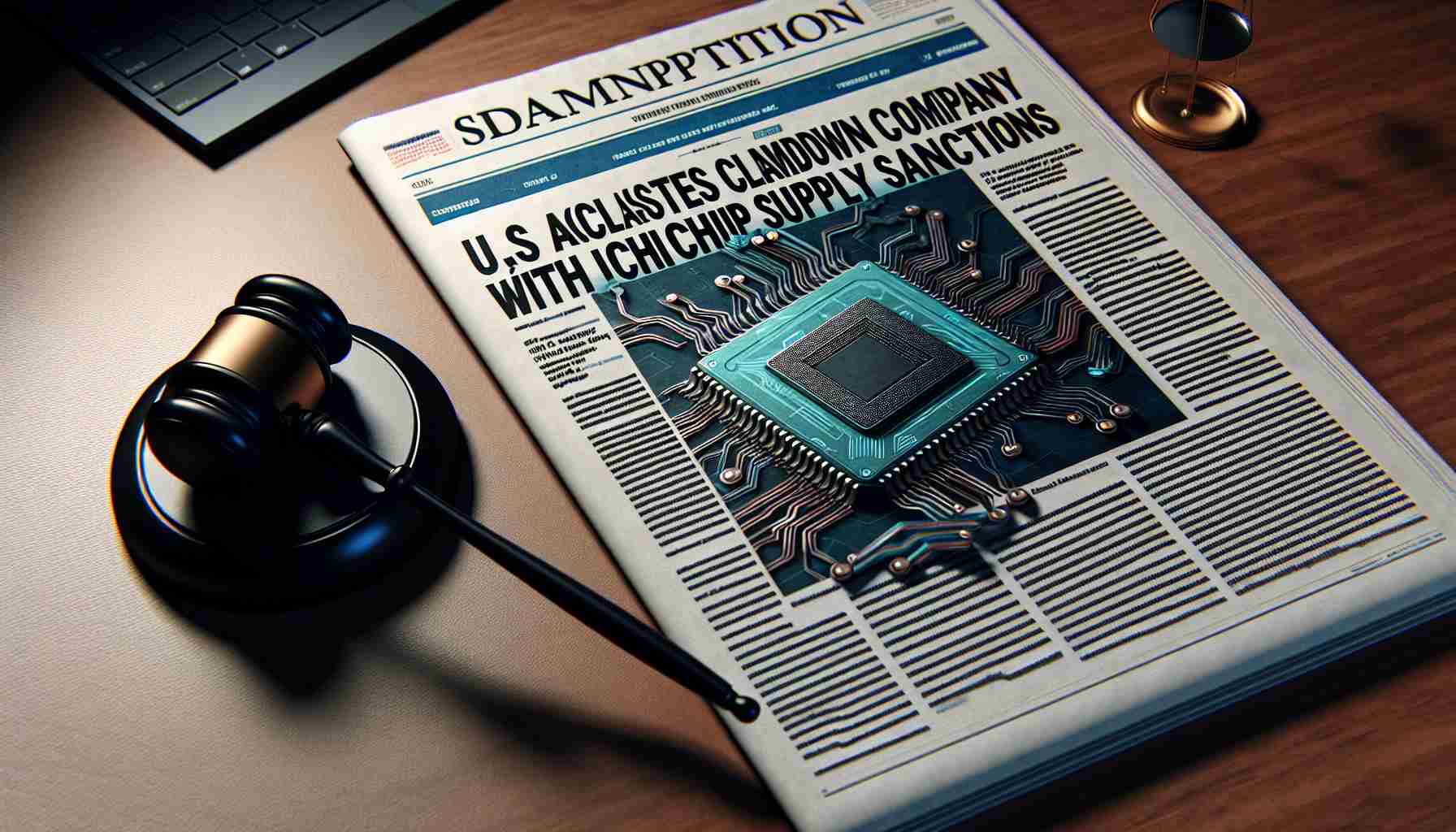Recent actions taken by the United States government have intensified the restrictions placed on Huawei, the Chinese tech giant already under a trade blacklist since 2019. The U.S. has revoked certain licenses that previously permitted semiconductor companies, such as the leading chip makers Intel and Qualcomm, to distribute laptop and handset chips to Huawei. This move is a strategic effort to diminish China’s technological prowess.
Acknowledging the tightened control measures, a Commerce Department spokesperson elaborated on the necessity for ongoing adjustments to export licenses—stressing the importance of aligning them with the evolving technological landscape and threats to national security.
Huawei’s inclusion on the trade blacklist bars the company from accessing American tech, including crucial 5G chips, due to risks flagged by U.S. policy. Further constraints were introduced in 2020, requiring non-U.S. chip manufacturers using American equipment to obtain a license before transacting with Huawei.
Despite these setbacks, Huawei persists, recently revealing its AI-empowered MateBook X Pro laptop driven by Intel’s latest processor. The launch generated political discontent, with some U.S. officials dismayed at apparent exceptions reportedly granted to Intel.
Moreover, analysis from TechInsights exposed a complex chip within Huawei’s Mate 60 Pro smartphone, believed to be produced by SMIC, China’s top chipmaker. Notably, this smartphone integrates 5G features, which the sanctions aimed to limit.
Qualcomm and Intel as suppliers to Huawei have faced their own challenges. Qualcomm, in an SEC filing, expressed anticipation of business disruptions due to clients like Huawei advancing their chip production, potentially impacting future revenue.
The action by American authorities signifies an unwavering commitment to national security considerations over market dynamics, while the affected companies must navigate the new landscape this presents.
Importance of Semiconductor Supply Chains
It’s relevant to note that Huawei’s difficulties stem from the pivotal role that semiconductors play in global technology infrastructure. Semiconductors are essential to all electronic devices, and the ability to produce and access these components is crucial for technological advancement and national security. The U.S. sanctions on chip supplies to Huawei not only impact the company but also serve as a signal to other nations about the U.S.’s strategic positioning on technology supply chains.
Key Questions and Answers
– Why has the United States targeted Huawei with chip supply sanctions? The United States government has expressed concerns that Huawei poses a national security risk, alleging that the company could facilitate espionage on behalf of the Chinese government. These sanctions are meant to hinder Huawei’s ability to obtain cutting-edge technology, which could potentially prevent such risks.
– How has Huawei responded to the increased sanctions? Huawei has been working on developing its semiconductor capabilities and finding alternative suppliers and technologies to mitigate the impact of U.S. sanctions. They have also diversified their product lines to include more devices that are less reliant on cutting-edge semiconductor technology.
Challenges and Controversies
The controversy primarily revolves around the balance between national security and global commerce. Huawei has repeatedly denied the allegations of espionage, and there has been significant debate about the fairness and impact of the U.S. sanctions. Additionally, these actions have intensified trade tensions between the U.S. and China.
The main challenge for Huawei is to maintain competitiveness in the global market without access to the necessary chips from their established suppliers. For the U.S., a key challenge is to ensure that its actions do not inadvertently harm domestic companies involved in the global supply chain for semiconductors.
Advantages and Disadvantages
Advantages:
– The sanctions might effectively protect national security if the concerns about Huawei are valid.
– Restricting Huawei’s access to advanced semiconductor technology could slow China’s technological military advancement.
– It may encourage the development of the domestic semiconductor industry in the U.S.
Disadvantages:
– The move can escalate trade tensions and may lead to retaliation from China, affecting global trade.
– U.S. companies like Intel and Qualcomm may lose significant revenue from losing Huawei as a customer.
– There may be negative impacts on the global semiconductor supply chain.
For further information on the subject, here are some related links:
– U.S. Department of Commerce
– Official Huawei website
– Intel Corporation
– Qualcomm Incorporated
Please note that the above links are directed to the main pages of the respective domains, and further specific information related to the topic would need to be searched for within those sites.
